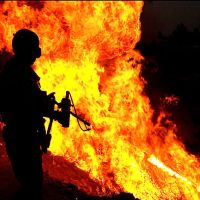- About Us
- Columns
- Letters
- Cartoons
- The Udder Limits
- Archives
- Ezy Reading Archive
- 2024 Cud Archives
- 2023 Cud Archives
- 2022 Cud Archives
- 2021 Cud Archives
- 2020 Cud Archives
- 2015-2019
- 2010-2014
- 2004-2009
 |
Cud Flashes In The Pan |
This month’s theme:
Frozen Frames, Part 2
(for Part 1, click HERE)
I had some nice response to the two-part tribute to Meat Loaf’s album Bat Out of Hell that I did in 2012, and last year I did a three-part tribute to Zager & Evans’ song “In the Year 2525.” This morning I was enjoying the sounds of the album Freeze Frame by The J. Geils Band, which was the first album I ever owned, way back in 1981. When it comes to inspiration in the realm of science fiction and fantasy, every song title on this album immediately stoked an idea in me. If you’re a J. Geils Band fan, you’ll appreciate this. (And if you’ve never heard this album, run, don’t walk, to give it a listen. Sweet rock and roll!) Like the BOOH tribute, this will run over two months (May and June). The theme: social oppression. Regular readers know I often write dystopian sci-fi, mostly because we must always be vigilant to prevent such social devolution.
“Flamethrower”
I forget the darkness...
By David M. Fitzpatrick
It’s midnight in the holding area, and it’s time to do my job. It’s so dark it’s hard to see; the dim lights along the perimeter barely illuminate the inky blackness, but it’s enough to see the guards marching the prisoners in. Of course, the prisoners know what’s about to happen.
I watch from behind the one-way glass as they mill about. A few are frantically stripping off their clothing, on the mythical belief that it will hurt less if they do. It won’t make a damn bit of difference.
I’m suited up in my armor, and as the guards leave the prisoners and the steel door clangs shut behind them, I don my helmet and secure it to the suit. I pick up my executioner’s tool and prepare to enter.
“Go get ‘em, Tony,” says one of the two guards in the control room.
I offer a mock salute as they buzz me in. I step into the holding area and all of the prisoners react when they see me. Some back away, as if to hide behind other prisoners; some begin to shake and tremble, and others to cry. All of them move as far from me as they can, congregating in the two corners ahead of me. It won’t help.

Then the voice comes over the loudspeaker.
“You have all been convicted of the crime of arson which caused the death of another,” the voice says. Pete in the control room, trying to sound all godlike and judgmental. The officials like that, and so do the millions watching the execution live. “Your sentence is death. In accordance with the law, the punishment shall fit the crime. You will be burned alive, slowly and deliberately. May the gods have mercy on your souls.”
On cue, I fire up the flamethrower I’m holding in both hands, and the barrel erupts with the billowing pilot light. The screams begin, and people run from one corner to the next. Futile and stupid. Amusing to many. Not to me. I’m just the guy who has to do the dirty work.
I move forward, cranking up the pilot until a fat torch is burning at the end of my barrel. I can hit them all from the middle of the room, but everyone wants drama. I play my role, like everyone has to. Most other people like their roles. Not me. I do it because I have to, so they don’t find a reason to execute me. I hate every moment of it.
I pull the trigger and hell explodes from the barrel. Flame lances out thirty feet from the gun, spreading into a wide cone of destruction, and instantly every one of the arsonists is aflame. The screams escalate, but no sooner do I make a complete sweep of the throng then I let the trigger go, and the water comes on. Everyone is doused in the darkness, and they’re all no longer burning. But they’re screaming and crying, begging and pleading. And they’re all burned—mostly second-degree, some third-degree.
The water shuts off—my cue. I fire again, and they burn and scream some more. It will go on like this until they’re all dead, and it can take a while. I once burned forty-one people alive and it took over twenty minutes with the water breaks. I always want it to be faster. I want the bright flames to go away, so I can be in the darkness and not see what I’ve done. But even in darkness I can never forget the images burned in my mind like their flesh is burned off their bodies.
I watch as charred skin flies off bodies, as eyes are burned out of heads, as the dead collapse to the floor, and from behind my mask I know that nobody can see me crying. It’s serious business to be the executioner, but nobody really thinks of us. They just watch in glee as criminals get what’s coming to them, as punishment is meted out, as an eye is exchanged for an eye and a tooth exchanged for a tooth.
But this kind of execution, they say, is the mark of a civilized society.
It’s easy to say. They aren’t the ones doing the executing.
“River Blindness”
Got to face it, can’t erase it...
By David M. Fitzpatrick
“Is it safe?” the captain asked.
“Without a detector, we don’t know, sir.”
“Well, we need to find out, soldier. The men need water.”
They stood on the banks of the mighty river. The captain scanned the flowing water until he saw movement.
“I see fish,” he said.
“True, sir, but we’ve often seen fish that have adapted,” the junior officer said.
“There’s one way of telling. Bring me a prisoner.”

The junior hurried off while the captain surveyed the river. It was so beautiful, rushing and reflecting the blue sky, that it was hard to believe that there could be anything wrong with it. But it could be full of death, and the captain needed to know.
The junior returned with a handcuffed soldier whose rank insignia had been torn off his uniform. The man needed a shave, and he looked angry. Two soldiers had hold of his arms.
“A deserter, sir,” the junior said, as if reading the captain’s mind.
“Perfect,” the captain said. “Do it.”
The soldiers forced the man to his knees on the riverbank, and he hollered and squirmed. It took them a minute to get him on his back with his head almost in the water.
“I’m not drinking it!” the man howled.
“We don’t need you to drink it,” the captain said. “It would take days to see if it killed you. We have a quicker test.”
One of the soldiers pried his eyes open and shoved his head under the flowing water. He kicked and squirmed, eyes wide, trying to flail back and forth. He was holding his breath, but bubbles finally billowed out of his mouth as he tried to holler, and then the soldiers hauled him up and dumped him on the shore. He sputtered and coughed and hacked.
“If it’s bad, it’ll kill me!” he screamed.
“Serves you right,” the captain said. “We don’t have a lot of patience for deserters.”
“I didn’t ask to be in your army!”
The soldiers hauled him to his knees and the junior officer grabbed his face and studied him. “How are you feeling?”
“Like I wish I’d run away the day you came to my town and forced every one of us to sign up,” the man spat.
It was quiet as everyone stared at him.
“What is it?” the deserter said. “What are you—?“
Then his face contorted in shock.
“My eyes are burning!” he screamed. “They’re burning! They hurt! I can’t see! I CAN’T SEE! I’m telling you, I’m BLIND!”
The captain sighed, drew his weapon, and shot the deserter in the head. The soldiers let his body crumple to the ground.
“The chemicals from the war got this one, too,” the captain said. “We’ll move upriver tomorrow and see if we can find an alpine source that isn’t contaminated. We’ll head out in the morning, after we collect the morning dew.”
He headed off, but turned back. “Throw his body in the river,” he said. “I suppose there isn’t much else that we can do to it that hasn’t already been done.”
“Angel in Blue”
She never had dreams, so they never came true...
By David M. Fitzpatrick
She wore a bluesuit, and stood out in the sea of whitesuits in the capital. There were always colors from the lower castes of society, but nobody in blue ever came to his business. There were always whitesuits as customers, but women looking for work were usually graysuits. Maynard watched as she crossed the plaza, bowing her head to avoid offensive eye contact with whitesuits and constantly stopping to let whitesuits pass. She finally made it to his door and opened it, lowering her eyes when she saw him. He wore a whitesuit, of course.
“Beg pardon, sir,” she said. “I offer myself as an employee, if you’ll have me.”
He chuckled. “You came all the way from the slums to ask for a job—here?”
She nodded, eyes still lowered.
“Look at me,” he said.

She looked up with cool blue eyes that glistened in the light. She was probably trying not to cry. He surveyed her; she was a tiny thing, but well proportioned and beautiful. The bluesuit fit well, and she had a nice figure.
“Why would you want to work for me?” he finally asked.
“My family... we need money,” she said. “There are no jobs in the slums. My husband makes very little, and we have a child. We’re... desperate.”
“Your husband allowed you to come here?”
She nodded.
Maynard scratched his head. “Are you aware of what I do for a business?”
She nodded again. “This is a brothel.”
“And you’re willing to be employed as a sex worker?”
She nodded, averting her gaze again. “We have no choice.”
He sighed. “Lady, I get lots of prostitutes here. Most of them are grays, from places worse than the slums. I’ve never gotten a blue here, or a red, or anything except grays and occasional yellows. The grays, they don’t have much worth in society anyway, so they don’t see doing this job as demeaning. The yellows do, but they’re mentally defective. But here you are, a blue, willing to be screwed all day long for crappy wages. Is that really what you want to do?”
“No, sir,” she said, head down, and he saw a tear fall to the floor.
She was beautiful. He knew he could get top dollar from any paying customer—in fact, once word spread, she wouldn’t get much sleep for a while, and his other girls would get extended vacations. But it just didn’t seem right.
“When you were a little girl,” he said, “what did you do to be as an adult?”
Her face turned up to him, her expression surprised, as if it were the last question she had ever expected. “I don’t understand,” she said, sniffling.
“I mean, what did you want to be when you grew up?”
“I... I never wanted to be anything,” she said. “I live in the slums. We work to survive. We’re assigned a husband. We’re allowed a child. I suppose I wanted to be a survivor when I grew up.”

“That’s it?” Maynard said, feeling the look of incredulity on his face. “You merely wanted to not die?”
She seemed confused. “Well, I guess I hoped my assigned husband would be a good man, and he is. So there’s that.”
Maynard couldn’t believe he was bothering to talk to her like this, because she was a cash cow waiting to make him rich. But there was something so innocent about her, and somehow it seemed wrong to turn her into one of his cattle.
“Listen, lady,” he said, his voice soft, “if you come here, I’ll make a lot of money off you. You’ll make a little. You’ll go home every night with enough to make life a tiny bit better for your husband and your child. But trust me, your husband will despise you. Your child will grow up knowing his mother is a whore. And you’ll feel cheap and useless for the rest of your life.”
“I’m already cheap and useless,” she said. “I might as well get paid for it.”
It felt like she had smacked him. He couldn’t imagine feeling that way about himself... but then, he wore white. He thought he knew what blues were like, but he realized that he’d always just stereotyped them. They were real people. She was a real person.
“All right, listen to me,” he said. “I’ll hire you for ten a day.”
She lit up. “I can’t thank you enough.”
“I’m not done,” he said. “You’ll work hard, all day, every day. You’ll live here, working six straight days, then go home for four. You’ll make sixty for those six days and you and your family will be in much better shape. In about a year, you can apply for redsuit status and move up in society.”
She gave a start. “I... I didn’t think a prostitute could be higher than blue.”
“They can’t. But I’m not hiring you as a prostitute.”
“I don’t understand...”
“You’re not a whore, lady,” Maynard said, gripping her shoulders and looking into her eyes. “I can’t explain it, but you’re... different. You don’t deserve to be a blue. You’re better than that. You deserve the chance to have aspirations in the world, to dream of more than you are. You’ll work here as my madam, overseeing the girls. You’ll run the brothel when I’m not here and take care of everything even when I am. You’ll have a real job, a real career, and your life will be better for it. Okay?”
He felt a swell of pride in himself, building in his chest. Maynard knew he wasn’t a great man, but this was the great thing he knew he’d always be happy that he did.
“Thank you, sir,” she said, “but, if it’s all the same, I’d rather be a whore.”
He stopped dead, his mouth sagging open. “What?”
“I know whores make five a day, but I’m told their customers slip them tips,” she said. “I’ve heard that whores can make fifteen a day. We could live so much better...”
He stepped back, dizzy, and leaned against the wall. He couldn’t believe it.
She smiled and stepped forward, putting her hand on his arm. “I appreciate your generosity, sir, but I’m just so desperate for money that I have to do whatever I have to do. But you needn’t be concerned: I am cheap. I am useless. I wouldn’t make a good madam anyway. I’m afraid I won’t be much good for anything but being a whore. But I promise you I’ll be a good whore...”
“Piss on the Wall”
Some people think the world is what it ain’t...
By David M. Fitzpatrick
Fifty thousand people approached the wall. The soldiers atop the wall watched them closing in, one line of bodies side by side stretching as far as the eye could see.
“Are we really going to let them do this?” one young soldier said. He was holding his weapon too tightly, almost angrily.
“There’s no law against it,” the senior officer said. “The courts have already ruled. The wall was built to withstand anything short of a nuclear blast. What they’re doing won’t hurt it.”
“But it’s disrespectful, sir!” cried another young soldier. “Disrespectful to the State—“

“And the court has ruled that their freedom speech allows such disrespect,” the commander said. “Now, do as you’re ordered, and keep your weapons lowered and let them make their anarchist statement.”
The soldiers watched as the endless line of people reached the wall’s base a hundred feet below. The people began firing up their personal computers, and protest messages projected into the air above them, around them, high in the air, further in the distance—a carefully planned maneuver so that the soldiers along the wall and the myriad news reporters covering the event would see it. The slogans protested the wall, the caste society, the lack of freedom, the barring of the masses from the fertile lands to the east. The slogans made it clear what they thought of the wall’s existence.
Then the protesters unbuckled their pants and lifted their skirts. The men faced the wall; the women mostly turned back-to the wall and dropped their pants. As if on cue, the masses began urinating. The men directed their streams everywhere, soaking the wall as high as they could; the women mostly sprayed low. Inside of a minute, fifty thousand people had all pissed on the wall.
“Disgusting,” one young soldier said.
“Patience, soldier,” the commander said.
The protesters finished and backed away from the wall, securing their clothing.
Then, high in the sky, a holographic message from the government appeared as giant text, and a booming voice came from the heavens, reading it.
“A law that has not been used in centuries is still valid,” the voice said. “Everyone here has been found guilty by the State of public nudity, a capital offense.”
The fifty thousand realized what was happening, and the screams began. The mass of people turned and fled, but even as they did aircraft appeared over the wall and began firing on the screaming masses. There was smoke and flames, and the air soon smelled of burning flesh. There was screaming and crying, begging for mercy, even some frantic apologies. But the aircraft kept firing until the bodies piled up.
“And that, soldiers, is how we do it,” said the commander, as the cheers from endless uniformed men atop the wall echoed through the noise of battle. “They can win their right to protest all they want, but the State will always find another way to silence them under the law.”
David M. Fitzpatrick is a fiction writer in Maine, USA. His many short stories have appeared in print magazines and anthologies around the world. He writes for a newspaper, writes fiction, edits anthologies, and teaches creative writing. Visit him at www.fitz42.net/writer to learn more.
